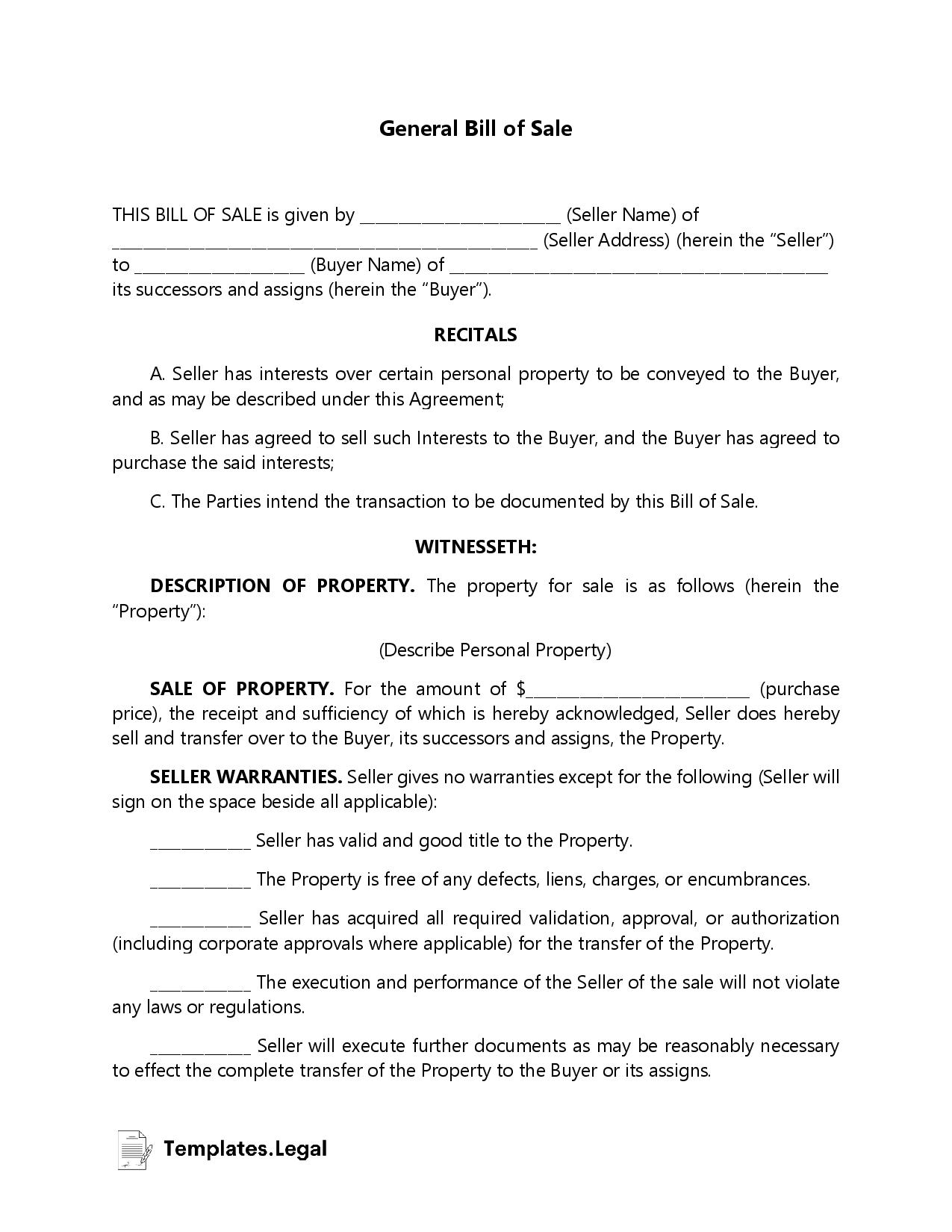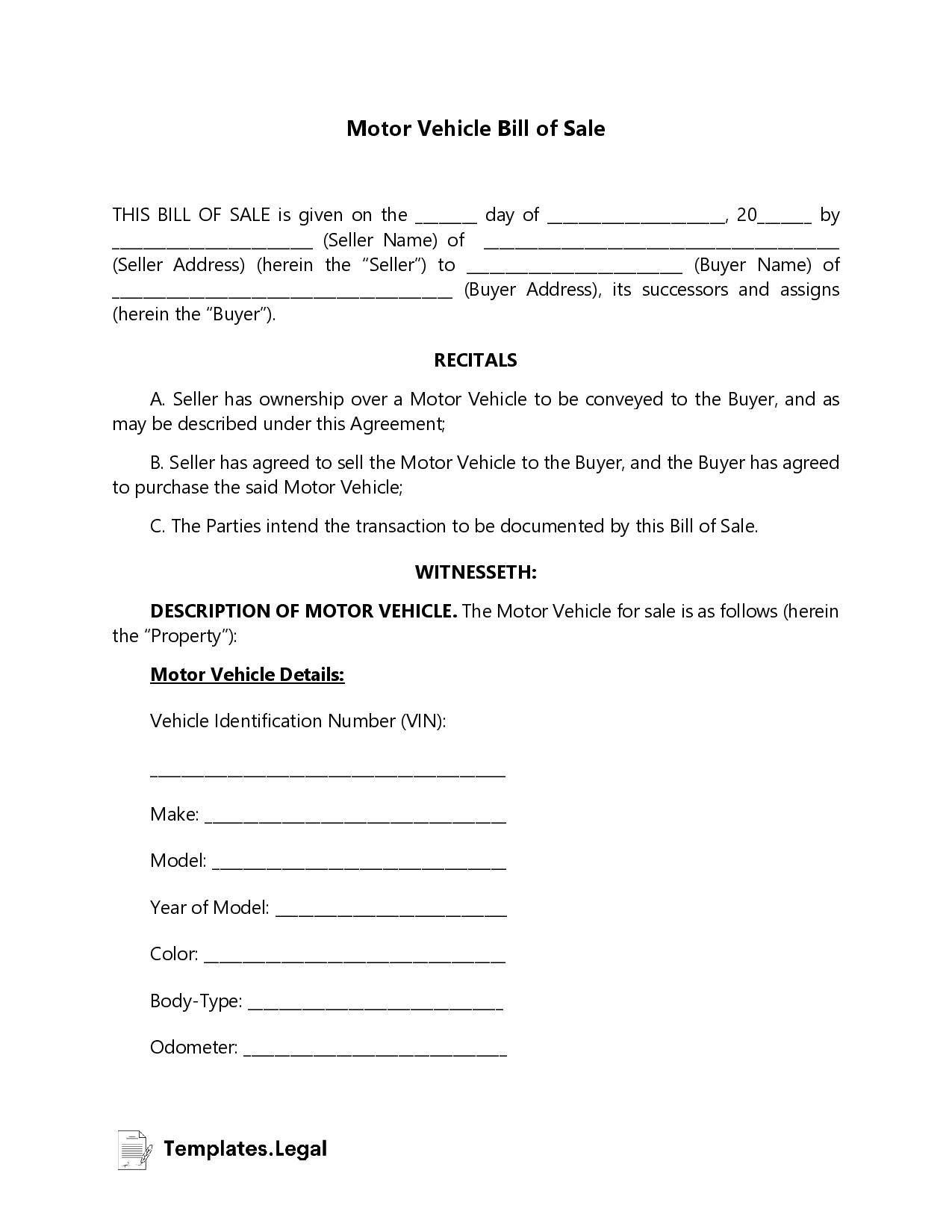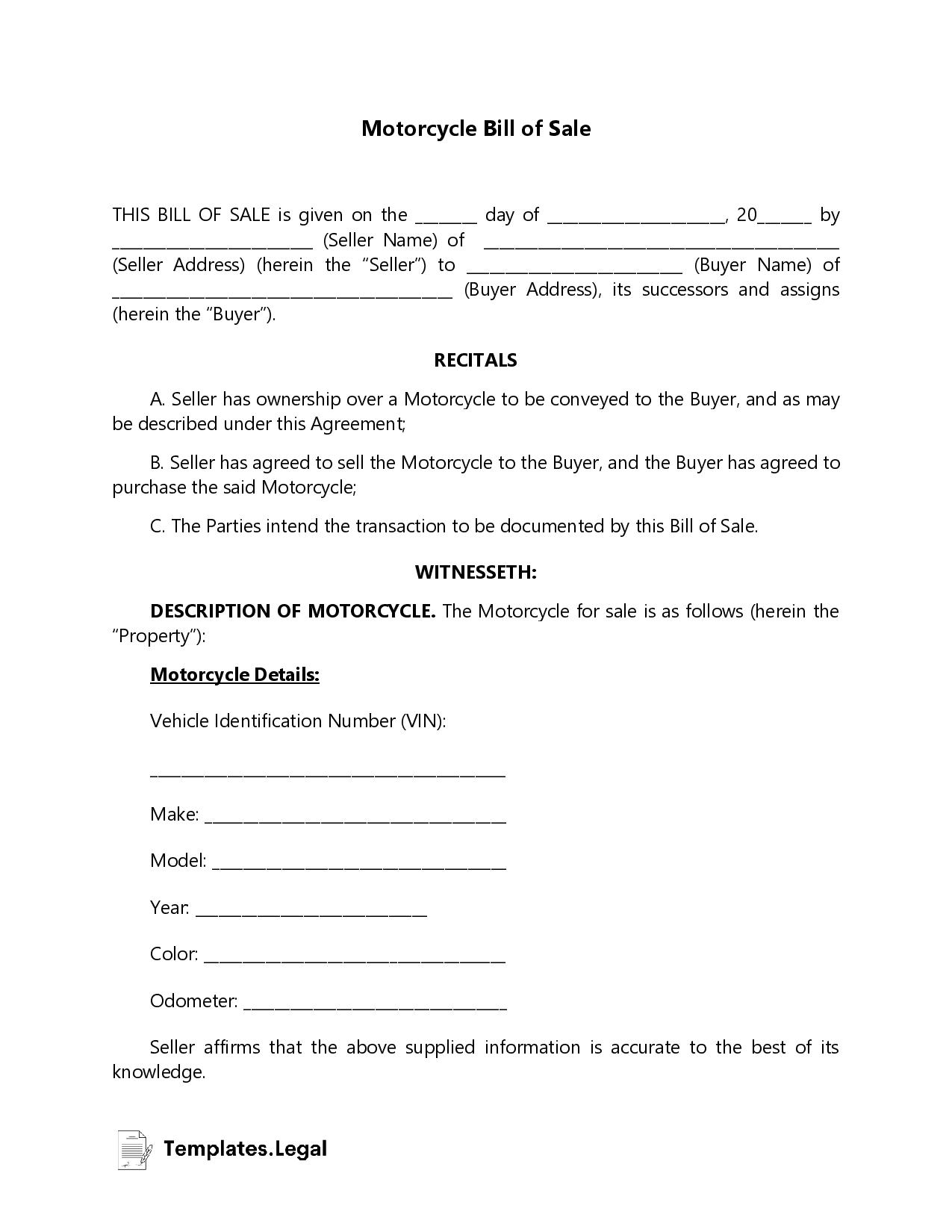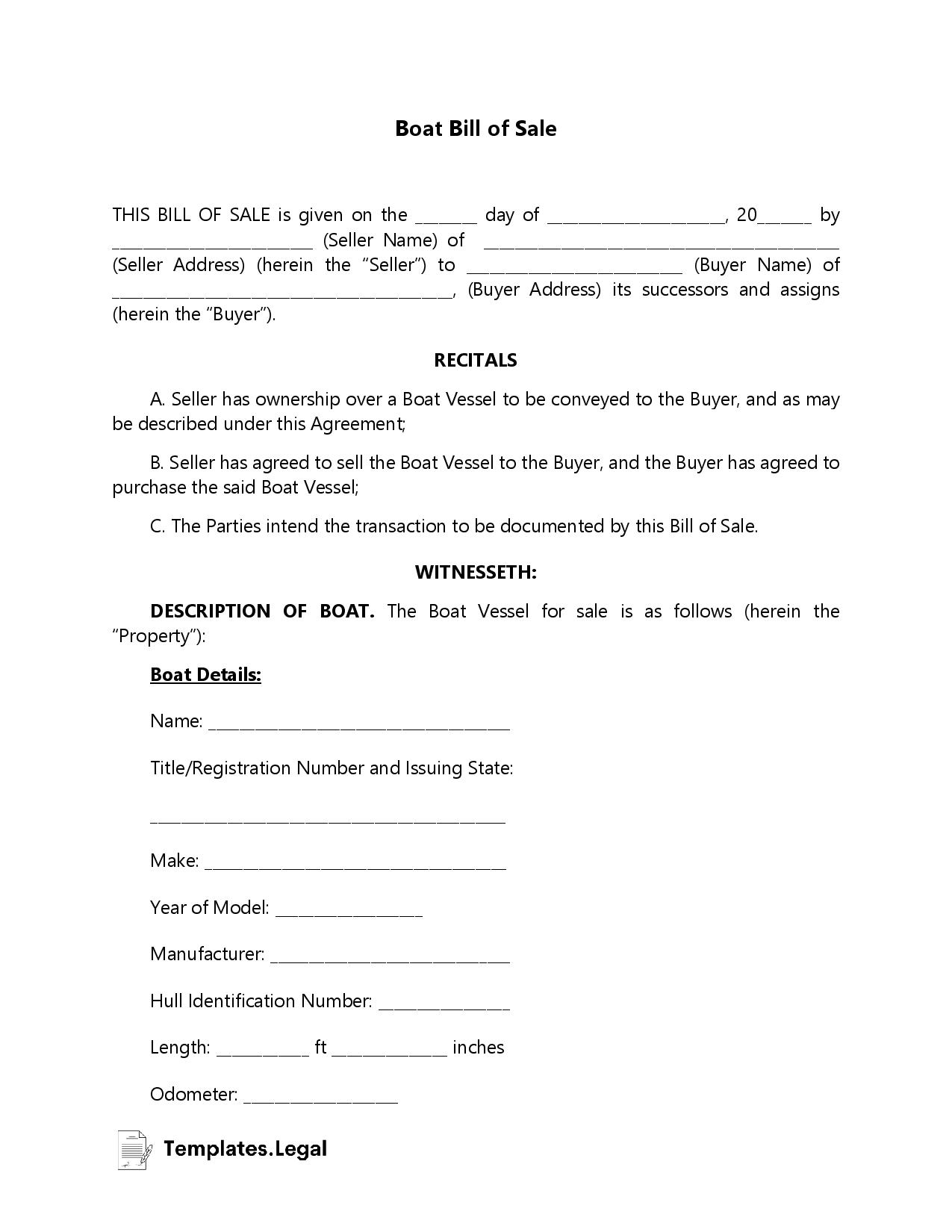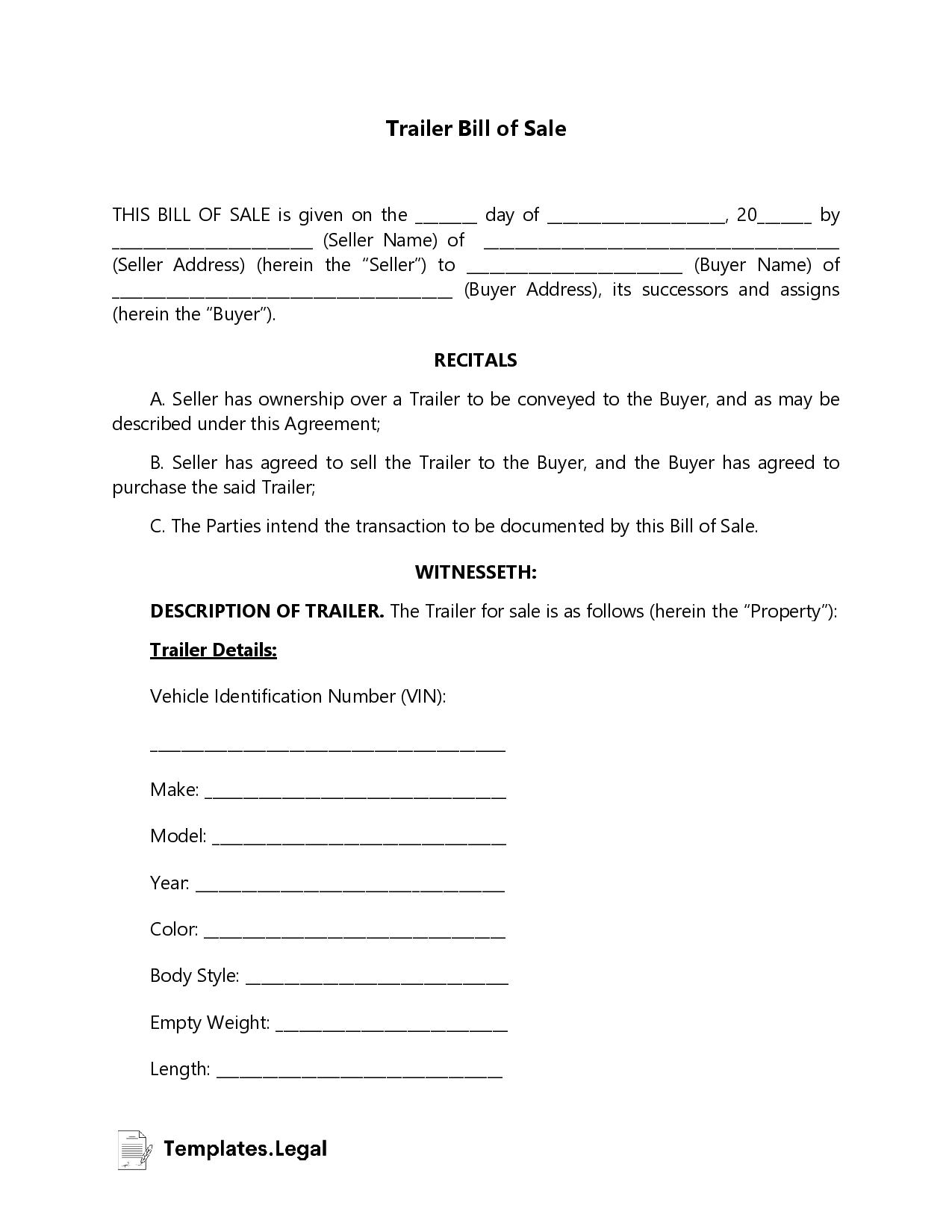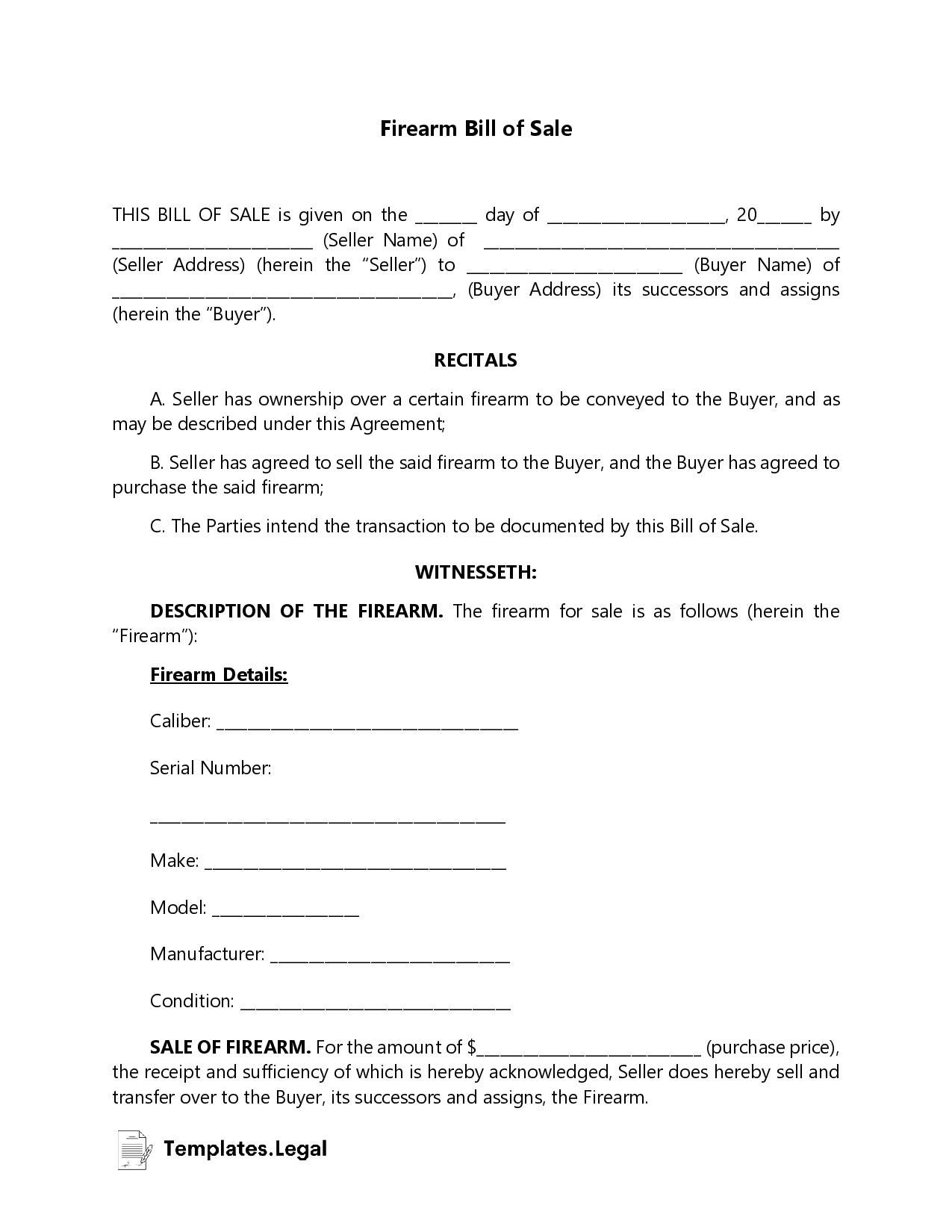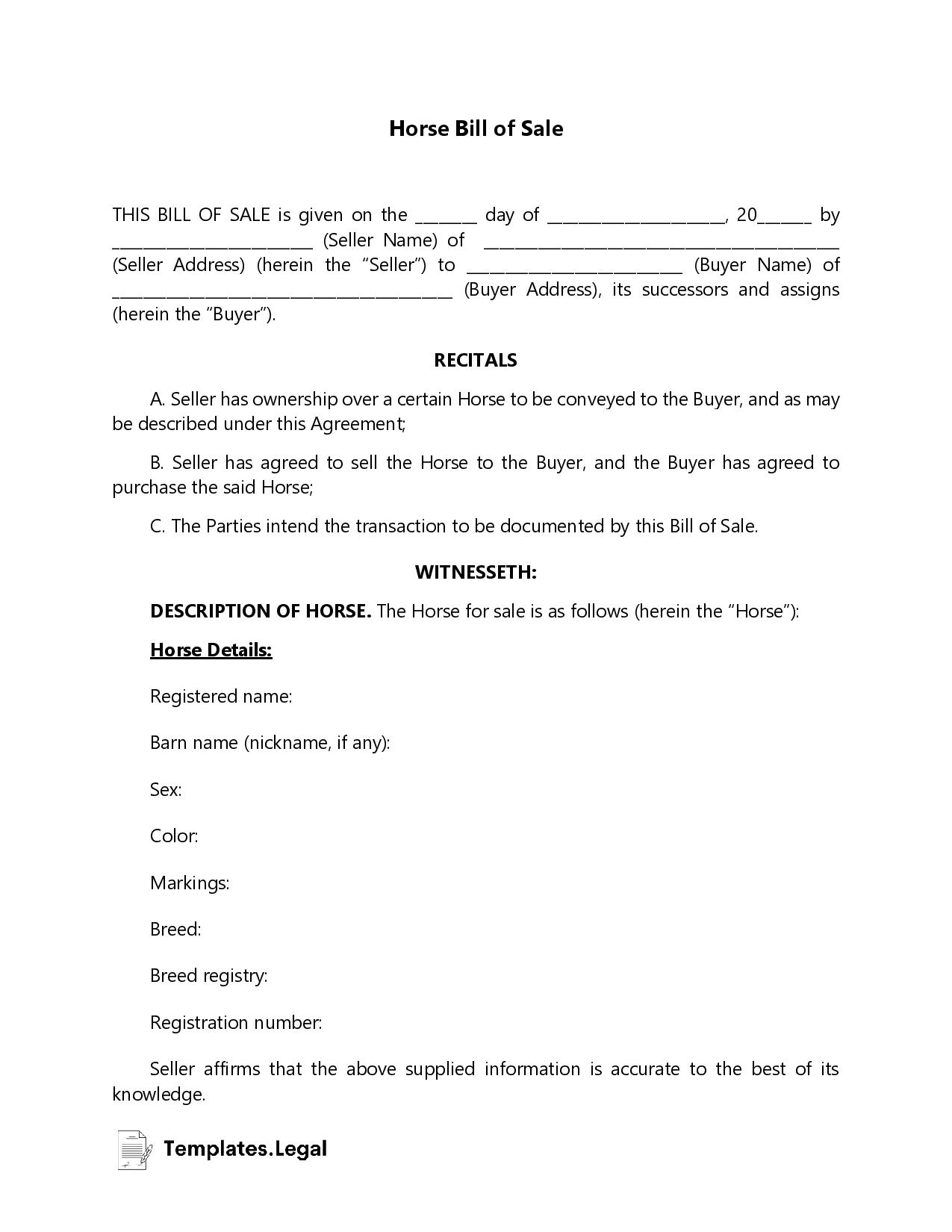Bill of Sale Templates
If you are selling something, it is recommended that you use a bill of sale. Such a bill will protect you in the event of any disputes. It is good for the buyer and the seller to keep a copy.
What Is a Bill of Sale?
A bill of sale is written when transferring ownership of personal property from one person to another. It proves that the seller transferred his property ownership rights to the buyer. This document is legal evidence if there is a dispute about the transaction.
These bills are also known as:
- Proof of purchase
- Proof of payment
- As-Is Bill of Sale
- Proof of Sale
- Sales slip
- Sales Receipt
There are actually two primary types of these bills: absolute and conditional.
Bill of Sale By State
Absolute Bill of Sale
A bill is considered “absolute” when transfer of ownership of a specific property, whatever it may be, is full and complete. In other words, there’s no debt involved: the whole monetary bill was paid in full.
Conditional Bill of Sale
As its name suggests, a bill is considered conditional when you need to meet certain conditions for ownership.
This could be something like selling the family car to your child if they get a certain GPA. It could be a breeding clause in any animals you buy: if those animals go on to produce new animals, you may owe the original owner a set fee.
A mortgage is another form of conditional sale. You own the house, so long as you pay your monthly fees. If you fail to make your payments, you lose the right to occupy your home and are no longer considered the owner.
Generic Bill of Sale
The generic bill of sale is used as a receipt recording the transaction between a seller and a buyer, and it shows that ownership has transferred to the buyer.
The generic version is commonly used for property such as jewelry, tools, pets, appliances, and furniture.
A description of the property ensures that the item is being bought as is, where it is.
It will contain the following:
- Name and address of the buyer and seller
- Description of the personal property
- Price and payment method
- Signatures of both seller and buyer.
For items under $500, only the seller’s signature is required.
It is important to remember to complete the transaction before the bill is signed, and you must exchange money before the transaction is finalized.
Here is an example of a generic bill.
Car/Motor Vehicle Bill of Sale
A bill of sale for a car, truck, or recreational vehicle is a receipt of the transaction between buyer and seller. It is necessary to have proof of ownership to buy insurance or register the car or truck, and it is also needed for tax purposes.
The following states require a bill:
- Alabama
- Arkansas
- Colorado
- Connecticut
- Hawaii
- Idaho
- Maine
- Nebraska
- New York
- Ohio
- Rhode Island
- South Dakota
- Vermont
- Washington
- West Virginia
- Wyoming
For some states, you have to notarize the bill for it to be considered valid.
Even if a bill is not legally required, it is good to get one for your protection. It will protect from liability if the vehicle is involved in any accidents in the future.
For vehicles, it is essential to have the following information:
- Name and address of the buyer and seller.
- Vehicle description – make, model, color.
- VIN – This is a must. It is the unique number that identifies your vehicle.
- Odometer reading – you must record the accurate odometer reading at the time of the sale.
- Liens – The seller must state if there are any liens against the vehicle. If there are any outstanding liens or loans, you must explain your repayment plan.
- Payment details – the price of the vehicle and the method of payment.
- Terms – You should state that the vehicle is being purchased and where it is. “As is” means that the buyer agrees to buy the property in its current condition.
- Notarized – This might be required depending on the laws of your state. It is best to find out this information before completing your sales transaction.
Here is an example of a vehicle.
Motorcycle Bill of Sale
The bill of sale format for a motorcycle is similar to a car, and the same information is needed. Here is a motorcycle example.
You need to record:
- The name and address of the buyer and seller
- Description of the motorbike (make, model, color)
- VIN – this is the unique number that identifies the motorcycle.
- Mileage – you must include an accurate record of the mileage.
- Condition – you can detail any damage to the motorbike, including dents or scratches
- Liens – the seller must declare any liens against the vehicle.
- Signature of buyer and seller and the date
Boat Bill of Sale
Some states do not require a bill when selling a boat. However, you will need one if you want to transfer the title into your name. Most states have templates for the bill of sale of a boat, or you can make your own.
If you buy a trailer that transports the boat, it is essential to include that detail in your bill.
You need to record:
- Name and address of buyer and seller
- Description of the vessel – you would describe the physical condition of the boat along with details about its make, model, color. You would also include information on the motor.
- Price and payment method
- Terms – you must detail if the payment has been entirely made or if you have accepted partial payment with a specified date for the remainder.
- Liens – the seller must declare any leans against the vessel.
- Signatures of both buyer and seller and date
- Some states require that the bill be notarized.
Here, you can find an example for a boat.
Trailer Bill of Sale
For a trailer, it is essential to have for demonstrating ownership, and it is often required for registration and tax purposes.
You will include:
- Name and address of buyer and seller
- Description
- Price and payment method
- Signatures of seller and buyer and the date
It requires the same basic information as a motorized vehicle. Here is an example for a trailer.
Firearm Bill of Sale
The requirements for the sale of firearms vary from state to state. It is best to check with your state laws before selling a firearm. Many states do not allow for private sales of firearms, and they require citizens to sell their firearms through a legal firearms dealer.
You must ensure that the buyer lives in your state.
It is crucial to ensure that the person buying is permitted to have firearms. Rather than taking on the responsibility of checking to see if a buyer is allowed to buy a gun, it is easier to use a licensed firearms dealer to complete the transaction for you.
You want to be a responsible firearm owner, so please check selling firearms responsibly if you have any questions about selling your firearm.
It must contain the following information:
- Name and address of buyer and seller
- Driver’s License of buyer
- Description of a firearm with serial number. You must note the serial number on the bill itself, and it is the number that is unique to that specific firearm. You want to ensure that you have proof that you have transferred ownership of the firearm to someone else.
- Price and payment method
- Signature of buyer and seller and date.
You can see an example for firearms here.
Horse Bill of Sale
For the sale of a horse, it is essential to have a sales agreement and a bill. This legally transfers the horse’s title to the buyer.
It must contain:
- The name and address of the buyer and the seller.
- Details on how the horse will be transported to its new owner.
- Name of the horse.
- The horse’s registration number or tattoo number (if any)
- Age of horse
- Markings on horse
- Date of the sale
- Price and payment method.
- Signature of buyer and seller and the date
For an example for horses, view here.
When Should I Use a Bill of Sale?
Completing a bill of sale is a responsible decision for a sales transaction. The seller and the buyer must retain copies for their records.
If a seller wants to sell personal property, the bill records the purchase details for his accounting records.
If a buyer plans on purchasing personal property, the bill of sale gives the buyer proof that he now has ownership of the property. The buyer can use the bill to maintain accurate accounting records.
Many states require these bills when transferring a vehicle title with the Department of Motor Vehicle, and it is also needed for tax purposes.
Should I Keep My Bill of Sale?
There are several reasons why keeping your bill of sale is vital. It will never expire, so you can keep it for your accounting files.
- Protection – Protects the interests of the seller and the buyer.
- Date -Documents the date of the transfer of ownership.
- Paper trail – Serves as evidence for tax purposes.
- Condition – The document describes the item’s condition on the date of purchase.
- Purchase price and payment method – Should detail the price and the payment method.
- Insurance – Often needed when buying insurance. The bill of sale shows legal ownership of the property.
How Do I Write a Bill of Sale?
Many websites offer a free template that you can fill out and print. This form is essentially the same for many sales transactions.
Every bill of sale must contain the basic information involved in the sale of the property. Some states require additional information for the sale of certain items, such as notarization. It is best to check with your specific state requirements before finalizing your document.
The basic information that must be on your bill is:
- Name and complete address of the buyer and seller.
- The date that the transaction is completed.
- Description of the item being sold. List any pertinent details to the state of the item’s condition.
- State item’s price and the form of payment. It would be best if you wrote the item’s cost and a description of the payment method. The most common methods of payment are cash and e-transfer.
- Signature of buyer and seller. In some states, both parties have to sign, and for smaller items, only the seller has to sign.
FAQ
Here are some of the most common questions.

